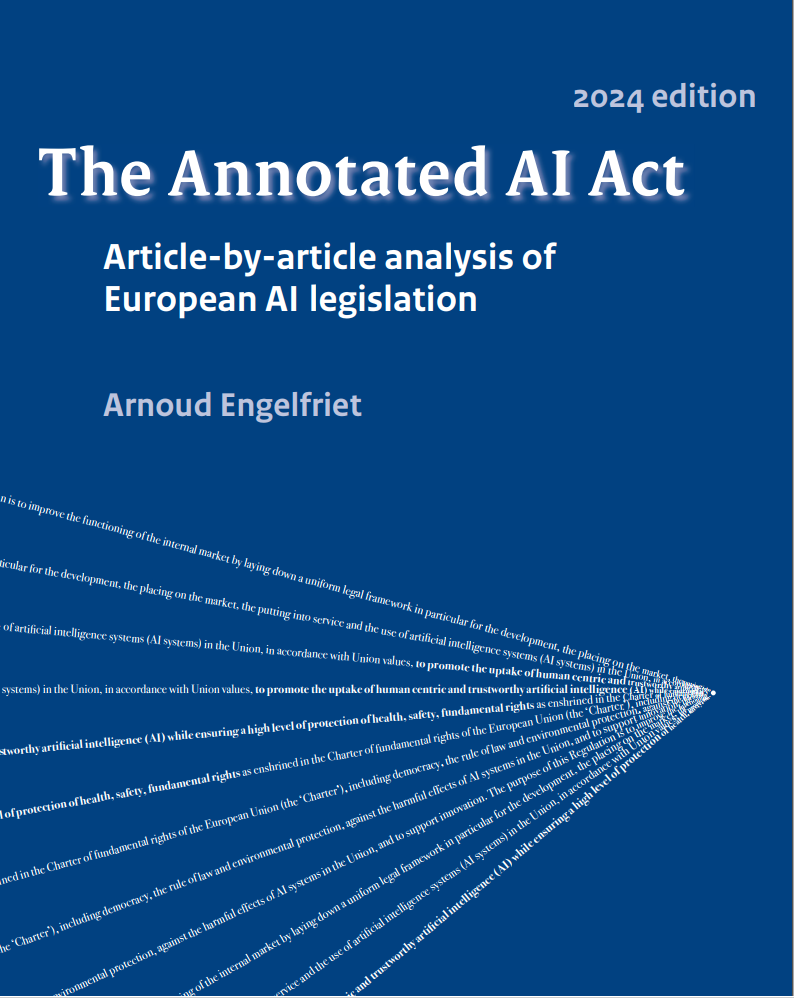AI and algorithms
This book provides insight into the evolving European AI legislation, including ethical guidelines and accountability mechanisms, enabling readers to analyze and apply the law and guidelines in practical scenarios.
.webp?width=2000&height=750&name=ICTRecht%20-%20Header%20-%20STAAND%20-%20Algemeen%20(9).webp)
We are a full-service law firm, specialized in ICT, security and privacy laws and regulations.
We offer a broad range of services in ICT/IT, privacy, security and intellectual property law. We provide practical and concrete legal advice that you can work with right away. All of our legal advisors have a thorough understanding of both the legal and technological aspects of ICT law. This enables us to tailor our advice for a diverse portfolio of clients, who range from multinationals to SMEs and start-ups.
Our legal advisors help with drafting documents and negotiating, for example IT contracts or privacy-related questions. In addition to providing advice, we provide in-house training and secondment services.
Technological developments, such as convergence, occur much faster than laws can ever be adapted. To properly apply laws to the current technological reality is a constant challenge, because these laws were often written with a very different or outdated technological reality in mind. At ICTRecht, we enjoy this challenge and are passionate about harnessing our legal and technological expertise to provide high quality, practical advice.

.jpg)
This book provides insight into the evolving European AI legislation, including ethical guidelines and accountability mechanisms, enabling readers to analyze and apply the law and guidelines in practical scenarios.

This book serves as a practical guide to the upcoming European AI Act, emphasizing strict regulations and ethical considerations. It thoroughly analyzes each article of the Act, translating theoretical concepts into practical applications and providing extensive cross-references and connections to the principles of 'trustworthy AI' set forth by the EU.